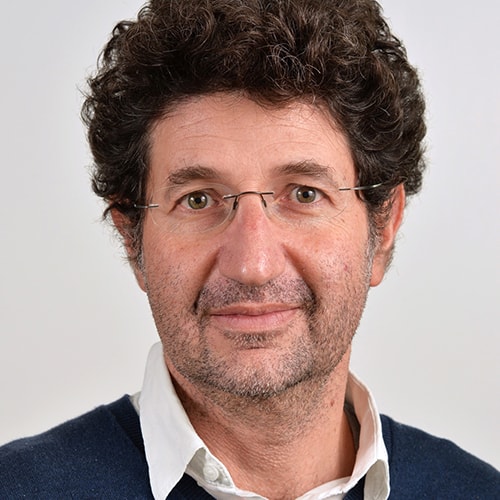NEW IDEAS IN COMPLEXITY SCIENCE
On May 24th, 2018, the First External Faculty Meeting of the Hub started with a public conference.
In short talks complexity scientists from all around globe shared their visions on the question “Complexity: Where do we go from here?”
What are the open, the most pressing, the most promising questions to an understanding of complexity and Big Data?
Find the talks of all conference participants (in order of appearance) on our Youtube channel in the playlist of the conference.
An overview with photographs of the event and links to all available slides can be found here.
VITO LATORA
“COMPLEXITY SCIENCE IS THE QUEEN OF INTERDISCIPLINARITY!”
Vito Latora, “a physicist in a maths department” at the School of Mathematical Sciences of Queen Mary University of London, pleas for more interdisciplinary research to face the challenges of the modern world.
“Interdisciplinarity is the opposite of specialization,” Vito says. By definition, “it involves the combination of two or more disciplines into one single activity to create something.”
It is about creating something new by thinking across boundaries.
In history, plenty of examples show that people worked together, for instance in ancient Greece or in the Renaissance. During the last couple of centuries though, humans started to create boundaries and walls between the disciplines.
But according to Vito, interdisciplinarity is needed to get a complete picture of the world where we are living and working.
Interestingly, he points out, interdisciplinarity pays off. With a slide, he shows that very specialized researchers are doing “quite well.” Researchers who do a little bit of interdisciplinarity run a risk. “But if you are doing a lot of interdisciplinarity, you can get a lot of success,” Vito found out.
Challenges that require an interdisciplinary approach, are the human brain, and human societies, with all their interactions, friendships, jobs, relations, formation of cultures, cities, smart/sustainable cities etc.
In order to become truly interdisciplinary, it is necessary to destroy boundaries. “We need to create common languages,” Vito says. “My hope is—or rather: I am sure!—that complexity will become the Experanto of science.”
CLICK FOR VITO’S SLIDES.
See the video in full lenght here:

